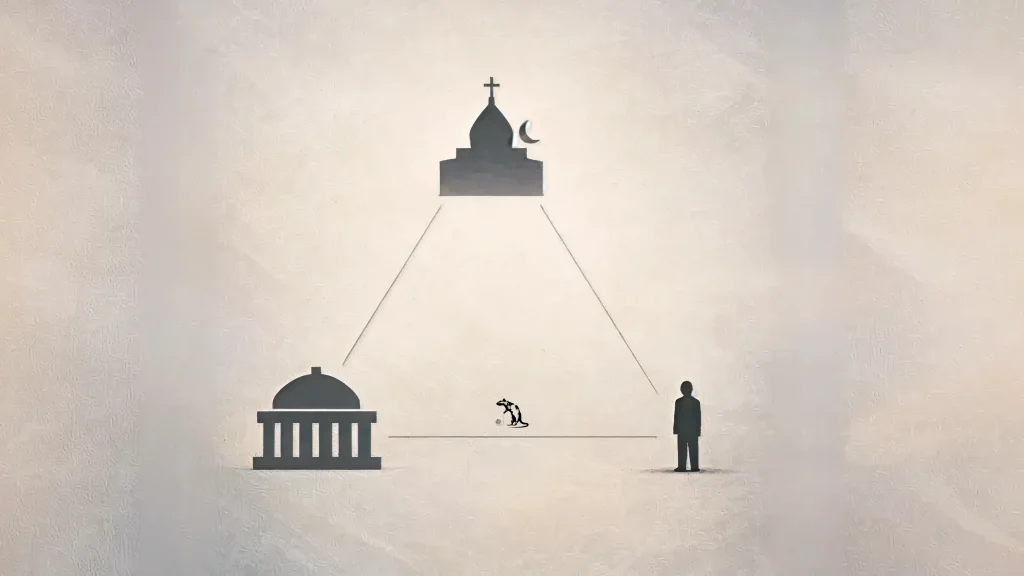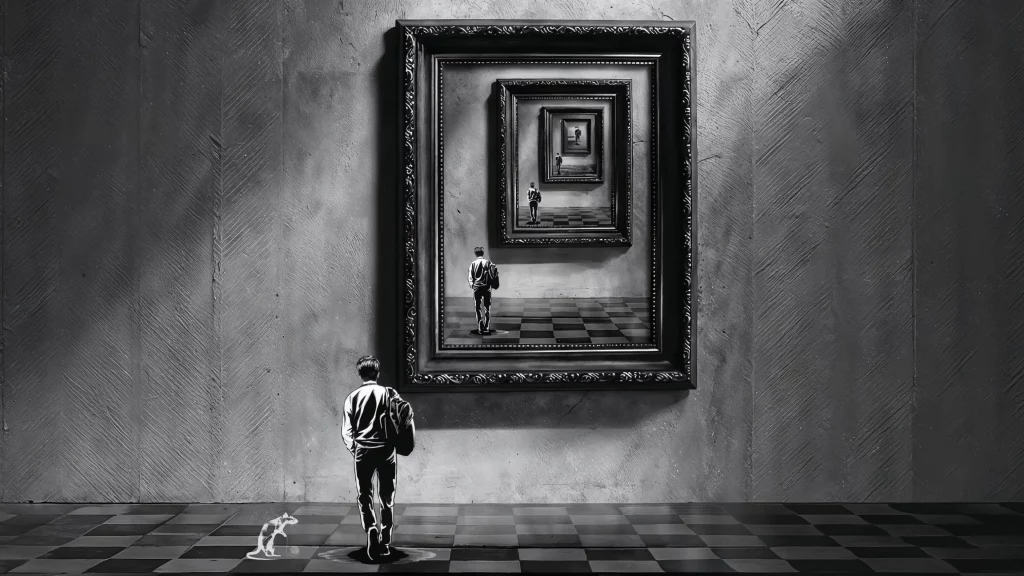The Cost of Justice
Picture two people. Sara and Ahmed.
Sara is facing blackmail at the hands of her so-called ex-boyfriend. In her child-like mind of child-like years, she once kept feeding his misguided desires, sending intimate images that he now threatens her with. He is her age, equally reckless. Not a day goes by that Sara doesn’t think of only two things: either ending her own life or calling him out. Both paths, she knows, mean personal, reputational, and legal battles.
Ahmed, on the other hand, is tangled in a family land dispute. His maternal uncles, bitter after a Friday-night argument, have decided to drag him into it. Right in the middle of his fifth-semester exams, he can almost see the police at his door, not knocking politely, but barging in. His uncles have money, influence, and the appetite to teach him a lesson he’ll never forget. Ahmed, too, wonders: what would a legal battle at this stage of his life look like?
And most importantly: what will it cost?
Sara, in desperation, does what people her age often do: she turns to ChatGPT.
She types her pain into a glowing box, and the machine responds:
“I am so sorry you had to go through this. Your rights of freedom and dignity are protected under Article 14 of the Constitution of Pakistan (which guarantees privacy and personal dignity). You can file a complaint under Section 21 of the Prevention of Electronic Crimes Act 2016 (which makes it a crime to share or threaten to share intimate images) and Section 506 of the Pakistan Penal Code (criminal intimidation).”
It sounds nice, neat, hopeful, like an answer sheet. But Sara doesn’t live in an answer sheet.
The moment she calls him out, the first backlash isn’t from the law, it’s from her own family. A mix of shame, scolding, and disbelief. Eventually, they agree to go to the police. But at the station, dozens of eyes pierce through her. A whisper here, a grin there. Someone even mutters, “Why did she send the pictures in the first place? It’s her fault.”
And Sara realizes the real puzzle: this was never a choice between right and wrong. It was a choice between two poisons. One kills silently in the dark. The other kills openly, in broad daylight, in front of an audience.
And every step forward reveals the actual cost from lawyer fees, to unofficial “chai” fees at the thana, to the reputational cost that might force her to switch schools, homes, even cities. At every corner, another mouth is waiting to be fed: the justice system hungry for speed money, the media hungry for views, the society hungry for scandal.
She recognizes where she lives. And what justice will cost her.
Ahmed doesn’t type into ChatGPT. He calls his friend’s brother, a lawyer.
The lawyer is calm:
“Beta, don’t worry. We’ll immediately file a pre-arrest bail application under Section 498 of the Code of Criminal Procedure (which allows a person to seek bail before arrest in non-bailable offences). No one will harm you. Send me fifty thousand rupees — I must take preventive steps right away.”
Relief washes over Ahmed for a moment.
Then the FIR lands. His uncles use their connections to lodge charges under Section 506 PPC (criminal intimidation: threatening someone with injury to person or property) and add Section 34 PPC (acts done with common intention: when several people share intent, all are liable). The police pick him up. No knocks, no warrants. Just sirens, rough hands, and humiliation.
He spends the night in a lock-up. No magistrate the next morning. His lawyer mutters, “The offence is serious, and the other side has influence. We’ll file a habeas petition under Section 491 CrPC (a petition to produce a person wrongfully detained before the court). Just have patience.”
That evening, two policemen approached Ahmed:
“Son, we feel for you. These are orders from above. But we can plead with the sahibs. You’ll be out tomorrow.”
Ahmed lights up with relief. Until the following words hit him like lightning: “It’ll cost five lakh rupees.”
And it hits him like lightning. The cost is not five lakhs. The cost is every step of the way. Bail will cost. Adjournments will cost. Influence will cost. Years will cost. The system will cost him a future, maybe a family, maybe a life. All at the mercy of men who can’t tell the difference between humane and inhumane, men who only learned power by exercising it over those weaker than them.
These are not exaggerations. Not isolated. Not imagination.
This is multiplied tenfold in intensity and happens thousands of times every day in Pakistan. A system where the cost of justice is not only financial. It is personal, social, reputational, and generational.
You enter it thinking it’s a fight between right and wrong. It quickly turns into a fight for survival.
- Lawyer’s fees: from a few thousand to lakhs, depending on how far the case drags.
- Court “expenses”: chai for the clerk, fuel for the naib qasid, photocopy charges that multiply like rabbits.
- Unofficial bribes: from police station to prison gate, every link in the chain feeds on you.
- Time: hearings delayed, adjournments upon adjournments, sometimes for years.
- Reputation: neighbors whisper, employers raise eyebrows, families break.
- Mental health: sleepless nights, endless fear, the constant feeling that your fate rests on the mood of men with unchecked power.
It is not “justice” as you see in Suits or movies. It is not dramatic speeches and last-minute confessions. It is painfully real. And it demands everything.
There is no “innocent until proven guilty” here. We play by “guilty until proven innocent.”
And that presumption of guilt, whether you are Sara or Ahmed, is the real cost of justice in Pakistan.
So the next time someone asks: “What does a legal battle cost here?”
Don’t think in terms of money alone. Think in terms of lives.
Because here, justice doesn’t just break your bank. It breaks you.



